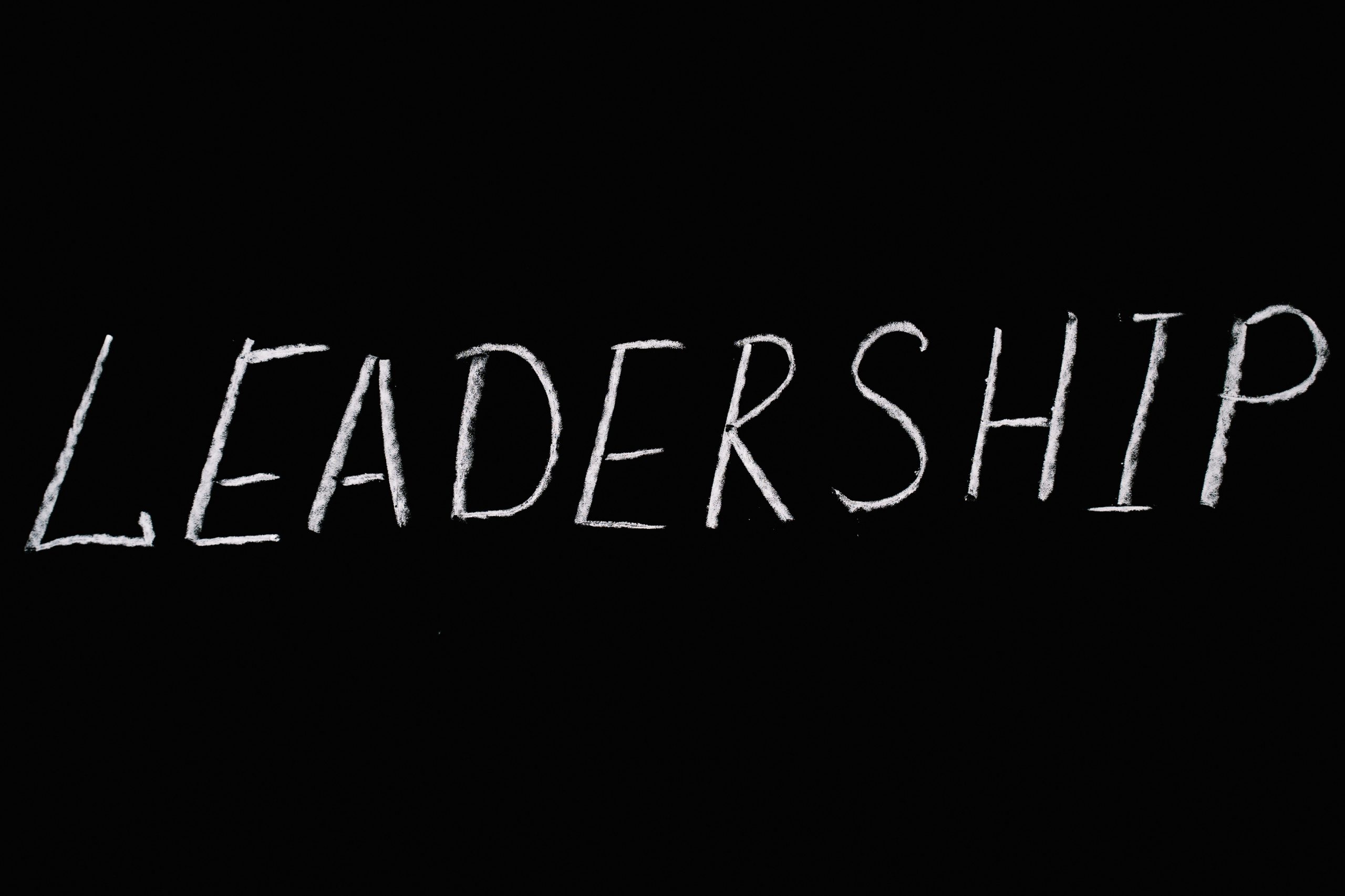If you find yourself in the midst of a probate process in Roy, Utah, you understand the complexities involved in navigating the legalities surrounding estate administration. With the guidance and expertise of a skilled probate attorney, you can ensure a smooth and efficient resolution. At our law firm, we specialize in assisting clients with their probate needs in Roy, Utah. With a deep understanding of the state’s laws and regulations, we offer personalized representation to help you navigate through the intricate probate process. Trust us to provide expert guidance, streamline the legal procedures, and ultimately alleviate your stress during this challenging time. Contact our probate attorney today for professional assistance in Roy, Utah.
What is Probate?
Probate is the legal process by which a deceased person’s assets are disposed of and their debts are paid. It involves the administration and distribution of the deceased person’s estate according to their will or, in the absence of a will, according to the applicable laws of intestacy. Probate ensures that the deceased person’s wishes are respected and that their assets are transferred to the rightful beneficiaries.
Definition of Probate
Probate is a legal process that validates and approves a deceased person’s will, if one exists, and ensures that their assets are distributed to their beneficiaries in accordance with their wishes.
Purpose of Probate
The purpose of probate is to provide a structure and legal framework for the orderly transfer of assets from a deceased person to their beneficiaries. It serves as a means to protect the rights of heirs, creditors, and other interested parties, and to ensure that the deceased person’s final affairs are properly settled.
When is Probate Necessary?
Probate is generally necessary when a person dies with assets solely in their name and the total value of those assets exceeds a certain threshold determined by state law. The specific rules and requirements for when probate is necessary may vary by jurisdiction, but generally, probate is required when there are significant assets or real property involved, or when there are disputes over the distribution of assets.
Importance of Hiring a Probate Attorney
Navigating the complex legal process of probate can be overwhelming, especially during a time of grief and loss. Hiring a probate attorney is crucial in ensuring that the process is handled efficiently and effectively. A skilled probate attorney can provide valuable guidance and support throughout the entire probate process.
Navigating the Complex Legal Process
Probate involves numerous legal requirements, intricate procedures, and court filings. It requires expert knowledge of probate laws, rules, and regulations. A probate attorney has the experience and expertise in handling all aspects of the probate process, from filing the necessary documents to representing clients in court proceedings.
Ensuring Proper Distribution of Assets
One of the primary responsibilities of a probate attorney is to ensure that the deceased person’s assets are distributed according to their wishes or the applicable laws of intestacy. The attorney will review the will and any related documentation, determine the rightful beneficiaries, and work diligently to ensure that their interests are protected. This includes identifying and valuing assets, resolving disputes, and distributing assets in a timely and appropriate manner.
Minimizing Family Disputes
Family disputes are common during the probate process, particularly when there are disagreements over the validity of the will or the distribution of assets. A probate attorney can act as a neutral and impartial party, helping to mediate and resolve conflicts. Their objective guidance can help minimize tensions and preserve family relationships.
Avoiding Delays and Costly Mistakes
Probate can be a lengthy and time-consuming process, with numerous legal deadlines and requirements. Delays or mistakes can result in unnecessary expenses, additional court proceedings, and prolonged stress for the family. A probate attorney ensures that all necessary tasks are completed promptly, accurately, and in compliance with the law, minimizing the risk of costly errors and delays.

Services Provided by a Probate Attorney
A probate attorney offers a wide range of services to help clients navigate the probate process with ease and efficiency. From probate administration to estate planning, the attorney’s expertise can address various legal matters and ensure the smooth execution of the deceased person’s final wishes.
Probate Administration
Probate administration involves overseeing the entire probate process, including filing the necessary court documents, managing estate assets, notifying creditors and beneficiaries, paying debts and taxes, and distributing assets to the rightful heirs. A probate attorney provides comprehensive support and guidance throughout the entire administration process.
Estate Planning
A probate attorney can assist individuals in creating a comprehensive estate plan to ensure their assets are distributed according to their wishes. This may involve drafting wills, establishing trusts, and making arrangements for the management of assets during their lifetime and after their death. Estate planning allows individuals to protect their assets, minimize tax liabilities, and ensure a smooth transfer of wealth to their loved ones.
Will and Trust Contests
If there are disputes or concerns regarding the validity of a will or trust, a probate attorney can represent interested parties in contesting or defending the document. They will analyze the relevant evidence, present arguments in court, and work towards a resolution that aligns with their client’s best interests.
Guardianship and Conservatorship Matters
A probate attorney can assist clients in establishing guardianships and conservatorships for minors or incapacitated adults. They can guide individuals through the legal process of appointing a guardian to make decisions on behalf of someone who is unable to do so themselves, ensuring the well-being and protection of vulnerable individuals.
Asset Valuation and Distribution
Determining the value of the deceased person’s assets is a crucial step in the probate process. A probate attorney has the knowledge and resources to accurately evaluate the assets, including real estate, financial accounts, investments, and personal belongings. They can also ensure the fair and equitable distribution of assets among the beneficiaries.
Debt and Tax Management
A probate attorney can assist in managing the deceased person’s debts and tax obligations. They will work with creditors to negotiate and settle outstanding debts, ensuring that the assets are distributed in compliance with applicable laws. The attorney also provides guidance on tax planning strategies to minimize tax liabilities for the estate and its beneficiaries.
Representation in Court
In cases where disputes or litigation arise during the probate process, a probate attorney can represent their client’s interests in court. They will advocate on behalf of their client, presenting evidence, making legal arguments, and working towards a favorable outcome in the proceedings.
Qualities to Look for in a Probate Attorney
Finding the right probate attorney is crucial for a smooth and successful probate process. Several key qualities and characteristics should be considered when selecting an attorney to handle probate matters.
Experience and Expertise in Probate Law
Probate law is complex and constantly evolving. It is essential to choose an attorney who specializes in probate and has extensive experience in handling similar cases. An experienced probate attorney will have in-depth knowledge of the relevant laws, procedures, and court processes, ensuring that they can effectively navigate any challenges that arise during the probate process.
Prompt and Responsive Communication
Effective communication is vital between an attorney and their client during the probate process. Look for an attorney who is responsive to inquiries, promptly returns calls or emails, and keeps clients informed of any updates or developments. Regular and clear communication helps build trust and ensures that the client remains informed and involved throughout the probate process.
Compassion and Understanding
Probate is often a sensitive and emotionally challenging time for families. Choose an attorney who demonstrates compassion, empathy, and understanding towards their clients. A compassionate probate attorney will provide support and guidance, while also respecting the individual needs and emotions of the family members involved.
Attention to Detail
The probate process involves numerous legal documents, deadlines, and requirements. An attorney with a keen eye for detail will ensure that all necessary paperwork is accurately prepared, submitted on time, and complies with the applicable laws and regulations. Attention to detail is crucial in avoiding costly mistakes and delays in the probate process.
Transparent and Fair Pricing
Probate can be an expensive process, and it is essential to have a clear understanding of the attorney’s fees and any additional costs involved. Look for a probate attorney who provides transparent and fair pricing, with a clear breakdown of their fees and services. A reputable attorney will discuss the fee structure upfront and provide an estimate of the total costs involved.
Positive Client Testimonials
Reading client testimonials and reviews can provide valuable insights into the quality of service provided by a probate attorney. Look for testimonials that highlight the attorney’s professionalism, knowledge, responsiveness, and overall client satisfaction. Positive client feedback can help you feel confident in your choice of probate attorney.

The Probate Process Step by Step
Understanding the probate process and its various steps can provide clarity and ease any anxieties. While the specific procedures may vary by jurisdiction, the following steps provide a general overview of the probate process.
Filing the Petition
The probate process begins by filing a petition with the appropriate probate court. The petition usually includes the will (if one exists) and any other necessary documents. The court will review the petition, appoint an executor or personal representative if necessary, and officially open the probate case.
Inventory and Appraisal
The executor or personal representative will compile an inventory of all the estate assets, including real property, financial accounts, investments, and personal belongings. The assets will be appraised to determine their fair market value as of the date of death.
Notifying Creditors and Beneficiaries
The executor will notify all known creditors of the deceased person’s death, giving them the opportunity to file claims against the estate for any outstanding debts. Similarly, beneficiaries and heirs will be notified of their rights to the estate and their potential inheritance.
Paying Debts and Taxes
The executor is responsible for paying off any valid debts or claims against the estate. This may include outstanding bills, funeral expenses, medical expenses, and administrative costs. Additionally, the executor must file any necessary tax returns and pay any applicable estate taxes.
Asset Distribution
Once all debts and taxes have been paid, the remaining assets will be distributed to the beneficiaries according to the terms of the will or the laws of intestacy. The executor will follow the instructions in the will or seek court approval for distribution in the absence of a valid will.
Final Accounting and Closing of the Estate
Once all assets have been distributed, the executor will prepare a final accounting of the estate. This accounting includes an inventory of assets, a record of expenses and distributions, and a proposed plan for closing the estate. The accounting will be submitted to the court for approval, and if accepted, the estate will be officially closed.
Common Issues in Probate Cases
While probate is designed to ensure a smooth transfer of assets, various issues can arise throughout the process. It is essential to be aware of these common issues and to address them proactively with the guidance of a qualified probate attorney.
Contested Wills
Contesting a will occurs when a party disputes the validity of the document. Common grounds for contesting a will include undue influence, lack of testamentary capacity, fraud, forgery, or improper execution. A probate attorney can help interested parties navigate these disputes and present their case effectively in court.
Disputes Over Assets
Family disputes over the distribution of assets can arise, particularly when there are disagreements or misunderstandings regarding the decedent’s intentions or when there are multiple potential beneficiaries. A probate attorney can provide guidance and mediation to help resolve these disputes and ensure a fair division of assets.
Undisclosed or Hidden Assets
In some cases, assets may be intentionally concealed or overlooked. This can occur due to fraudulent actions or simply because the decedent failed to disclose all of their assets. A probate attorney can conduct a thorough investigation to identify any undisclosed or hidden assets and ensure that they are properly included in the probate process.
Executor Misconduct
An executor has a fiduciary duty to act in the best interests of the estate and its beneficiaries. If an executor fails to fulfill their duties or engages in misconduct, beneficiaries can bring legal action against them. A probate attorney can guide beneficiaries in pursuing legal remedies to hold the executor accountable for their actions.
Fraudulent Transfers
Fraudulent transfers involve the improper transfer of assets to avoid creditors or alter the intended distribution of assets. A probate attorney can assist in identifying and challenging fraudulent transfers, ensuring that the assets are properly accounted for and distributed according to the decedent’s wishes or applicable laws.
Invalid or Improperly Executed Wills
A will may be deemed invalid or improperly executed if it fails to meet the legal requirements of the jurisdiction. This can include instances where the will was not properly witnessed, lacks testamentary capacity, or was executed under undue influence. A probate attorney can help interested parties contest the validity of a will or defend its validity against challenges.
Costs Associated with Probate
Probate can involve various costs and fees that should be carefully considered. While the specific costs may vary depending on the complexity of the estate and the laws of the jurisdiction, the following are common expenses associated with probate.
Attorney Fees
Probate attorneys typically charge fees based on an hourly rate or a percentage of the estate’s value. The fees will depend on the complexity of the case, the attorney’s experience, and the specific services provided. It is essential to have a clear understanding of the attorney’s fee structure and to inquire about any additional costs that may arise.
Court Costs
Filing fees, document filing and processing fees, and other court-related expenses are typically incurred during the probate process. These costs vary depending on the jurisdiction and the specific court requirements. It is important to budget for these expenses and factor them into the overall cost of probate.
Appraisal Fees
Appraising the value of the deceased person’s assets, particularly real estate or valuable personal belongings, may require professional appraisers. These appraisers charge fees based on the complexity and value of the assets being appraised. The costs of an appraisal should be considered when calculating the overall expenses of probate.
Executor Fees
In some cases, the executor or personal representative of the estate is entitled to receive compensation for their services. The specific fees allowable, if any, are determined by state laws or the terms of the will. Executor fees are typically calculated as a percentage of the estate’s value or as a reasonable fee based on the services provided.
Accounting Fees
Preparing and filing the final accounting of the estate may require the assistance of an accountant or tax professional. These professionals can provide guidance on tax matters, ensure compliance with tax laws, and assist in preparing the necessary financial reports. Accounting fees should be considered as part of the overall cost of probate.
Other Miscellaneous Expenses
Additional expenses may arise during the probate process, such as costs for document copies, postage, courier services, and any necessary court hearings or legal representation. It is important to consult with a probate attorney to discuss all potential costs and expenses that may be incurred.
Common Alternatives to Probate
While probate is the default legal process for settling a deceased person’s estate, there are alternatives available that can avoid or streamline the probate process. These alternatives can be utilized depending on the specific circumstances and the desires of the individual in question.
Living Trusts
A living trust allows individuals to transfer their assets into a trust during their lifetime, with the assets being managed by a trustee. Upon the individual’s death, the assets are distributed to the designated beneficiaries without going through probate. Living trusts can help avoid the cost, time, and public nature of probate.
Joint Ownership of Assets
Joint ownership of assets allows individuals to co-own property or financial accounts with another person. When one co-owner dies, ownership automatically transfers to the surviving owner without the need for probate. Joint ownership can be established through joint tenancy, tenancy by the entirety, or community property with right of survivorship, depending on the specific state laws.
Beneficiary Designations
Certain assets, such as life insurance policies, retirement accounts, and payable-on-death bank accounts, allow individuals to designate beneficiaries. Upon the individual’s death, these assets are directly transferred to the named beneficiaries without going through probate. Ensuring proper beneficiary designations can simplify the asset transfer process.
Transfer-on-Death Deeds
Some jurisdictions allow for transfer-on-death deeds, also known as beneficiary deeds. These deeds allow individuals to designate a beneficiary who will automatically receive ownership of the property upon the individual’s death, without the need for probate. Transfer-on-death deeds can be an effective way to transfer real estate to intended beneficiaries.
Gifts and Charitable Bequests
Individuals can use gifting or charitable bequests to transfer assets to beneficiaries or charitable organizations. By making gifts or leaving charitable bequests during their lifetime, individuals can avoid these assets going through probate after their death. However, it is important to ensure compliance with any applicable gift tax laws and to consult with a tax professional.

Frequently Asked Questions
To provide further clarity and address common concerns, here are answers to some frequently asked questions about probate.
How long does the probate process take?
The duration of the probate process can vary depending on the complexity of the estate, the size of the estate, and the specific laws of the jurisdiction. Generally, probate can take several months to a year or more. Complicated estates or disputes can prolong the process.
Can I contest a will?
Yes, it is possible to contest a will if you have a valid legal basis to do so. Grounds for contesting a will may include lack of testamentary capacity, undue influence, fraud, forgery, or improper execution. Consulting with a probate attorney is essential to determine the viability and strength of your case.
Do all estates go through probate?
Not all estates are subject to probate. Estates with a total value below the threshold set by state law may be exempt from probate. Additionally, assets held in joint tenancy, assets with designated beneficiaries, and assets held in a trust may avoid the probate process.
What happens if someone dies without a will?
When a person dies without a will, their estate is distributed according to the laws of intestacy in the applicable jurisdiction. The laws of intestacy determine the beneficiaries and the division of assets based on the surviving family members’ relationships to the deceased person.
Can I be the executor of an estate if I live out of state?
Yes, it is possible to serve as an executor of an estate even if you live out of state. However, it may involve additional complexities and logistical challenges. It is important to consult with a probate attorney to understand the requirements and responsibilities of serving as an out-of-state executor.
Contact Us for Probate Assistance
Probate matters can be complex and emotionally challenging. If you require assistance with probate, we are here to help. Our team of experienced probate attorneys in Roy, Utah, is ready to provide comprehensive legal guidance and support throughout the probate process.
Phone Number
Please feel free to contact us at [phone number] to schedule a consultation and discuss your probate needs.
Email Address
You can also reach us via email at [email address] if you have any questions or would like to seek our assistance.
Physical Address
Our office is located at [physical address]. We welcome you to visit us in person and discuss your probate concerns.
Office Hours
Our office hours are as follows:
- Monday to Friday: [office hours]
- Saturday and Sunday: Closed
Free Initial Consultation
We offer a free initial consultation to discuss your probate case and provide an overview of our services. We understand the importance of finding the right probate attorney, and we are committed to helping you navigate the probate process with ease and confidence.
























